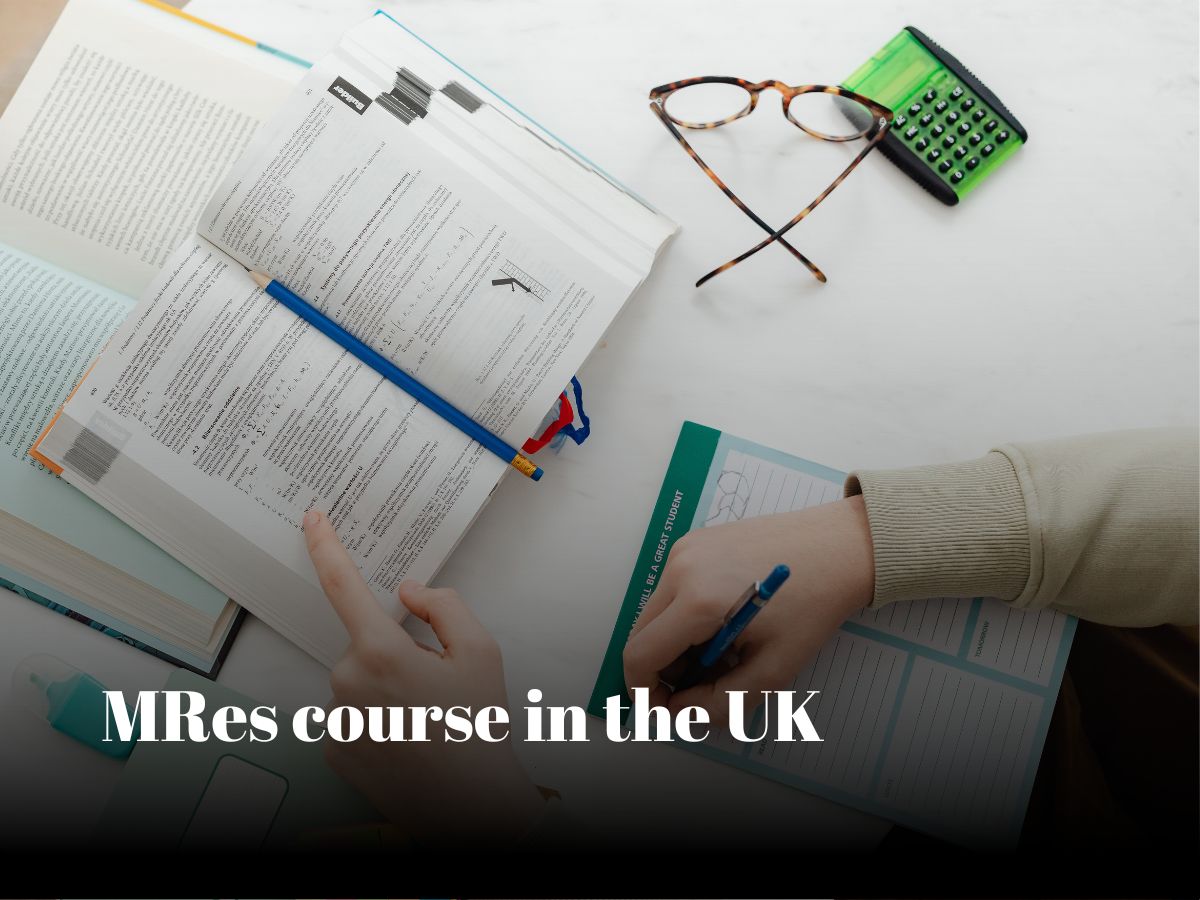MRes course at UK University from Bangladesh is an advanced postgraduate research degree, highly valued for those aiming to pursue a career in research or academia. It’s an ideal pathway for Bangladeshi students aspiring to excel in research or continue toward a Ph.D. in the UK. This article delves into the MRes course structure, benefits, eligibility, and how it can enhance a student’s career prospects.
Advantages of Studying MRes course at UK University
The UK is a top destination for Bangladeshi students pursuing an MRes degree, thanks to its welcoming environment and strong academic reputation. British universities offer extensive support to international students, helping them improve their English language skills and adapt to the local culture, academic life, and research requirements.
Here are the key benefits of choosing the UK for an MRes:
- Top Universities
- Research Opportunities
- Recognized Degrees
- Cultural Diversity
- Expert Faculty
- Wide Course Selection
- Scholarship Options
- Career Prospects
- Safe Accommodation
Why Study MRes in the UK?
- Globally Recognized Institutions: The UK is home to some of the top-ranked universities in the world. Universities like Oxford, Cambridge, Imperial College London, and University College London are renowned for their cutting-edge research facilities and academic excellence. This makes the UK a top destination for students seeking quality research education.
- Access to Cutting-Edge Research: The UK invests heavily in research and development, providing students with access to state-of-the-art laboratories, research centers, and libraries. Additionally, the UK is known for its interdisciplinary research approach, encouraging collaboration between departments and faculties.
- Academic and Career Advancement: Completing an MRes in the UK opens up various opportunities for career advancement, whether in academia or research-focused industries. It can also serve as a stepping stone toward a Ph.D. or a research position in prestigious organizations.
- Post-Study Work Visa Opportunities: The UK offers favorable post-study work visa options for international students. After completing their MRes, students can apply for a Graduate Route visa, allowing them to stay and work in the UK for up to two years.
What is an MRes?
An MRes (Master of Research) is a unique type of master’s degree focused primarily on research. Unlike a taught master’s degree, which includes lectures, seminars, and exams, the MRes course at UK University involves a significant independent research project, often accounting for over 60% of the program. The course is generally more research-intensive than a Master of Science (MSc) or a Master of Arts (MA) and provides an excellent foundation for students aiming to pursue a Ph.D. or a career in research.
Key Features of an MRes Course
- Research-Centric Learning: MRes course at UK University programs emphasize independent research, allowing students to work on substantial research projects with close supervision from academic experts. It equips students with the skills to conduct high-level, independent research and solve complex real-world problems.
- Flexibility: One of the key aspects of the MRes course at UK University is its flexibility. The course allows students to choose their research topic in collaboration with their supervisor, making it personalized to their academic interests and career goals.
- Duration: Typically, an MRes course at UK University program in the UK lasts for 1 year if studied full-time. However, part-time options are also available, extending the course to 2 years.
- Course Components: While the core of the MRes course at UK University revolves around independent research, it also includes some taught modules that provide research methodology, techniques, and skills essential for carrying out successful research.
- Assessment: MRes course at UK University programs are assessed mainly through the submission of a research dissertation. There may be additional assessments for any taught modules, which can include essays, presentations, or practical reports.

Modules of MRes Courses in the UK
The modules for MRes courses can vary by subject and university, but here are some common ones that give you an idea of what to expect:
- Research Methodology
- Research Ethics
- Literature Reviews
- Dissertation Preparation
- Field-Specific Studies
- Interdisciplinary Studies
- Research Project
Top UK Universities Offering MRes Programmes
Here are some top UK universities that offer MRes programs:
- Nottingham Trent University
- Swansea University
- University of Derby
- University of Dundee
- University of Essex
- University of Gloucestershire
- University of Greenwich
- University of Hertfordshire
- University of Huddersfield
- University of Lincoln
- University of Portsmouth
- University of Salford
- University of Strathclyde
- University of York
- Birkbeck, University of London
Popular MRes Courses in the UK
MRes course at UK University degrees are available in a wide range of subjects in the UK, from design to law. Some popular MRes courses include:
- Experimental and Translational Immunology
- Global Politics
- Philosophy
- Health Science
- Sport and Exercise Science
- Social Anthropology
- Computer Science
- Bioscience
- Law
- Clinical Drug Development
Difference Between MA, MSc, MPhil, and MRes
The MRes (Master of Research) is a “second cycle” degree, like the MA (Master of Arts) or MSc (Master of Science). This means it’s completed after undergraduate studies but before doing research at the PhD level.
Students who want to work in academia may find an MRes more helpful because it focuses on research skills. MRes and other taught master’s degrees like MA and MSc are quite different.
If you’re aiming for a job in business or industry, where research skills are needed but a PhD isn’t, an MRes could be your final degree. Here’s a look at the differences:
MRes vs. MPhil:
An MRes is a standalone degree, which sets it apart from other research degrees like the MPhil (Master of Philosophy). The MRes helps you build research skills, while the MPhil is usually based on a single research topic.
Both MRes and MPhil can prepare you for a PhD, but an MPhil is often part of a PhD program. Some universities might give an MRes to PhD students who leave early or include it as part of a “1+3” PhD program, where you do one year of MRes before starting your PhD.
MRes vs. MSc/MA:
The biggest difference between an MRes and MSc or MA is how they’re delivered. In an MRes, most of your work will be an independent research project. In an MSc or MA, you’ll take several taught courses along with a dissertation.
The dissertation for an MRes is longer, usually around 35,000 words, while the MSc or MA dissertation is typically between 15,000 to 20,000 words.
Both degrees take one year to complete and are worth 180 CATS points (academic credits).

Entry Requirements for MRes Courses in the UK
To apply for an MRes course in the UK, students must have a high school diploma or an equivalent qualification. They also need to have completed an undergraduate degree, preferably with a 2:1 or higher from a UK university, or an international equivalent, such as a GPA of 3.0/4.0. The degree should be recognized by the government.
Applicants are also usually required to prove their English proficiency through exams like the IELTS or TOEFL. For MRes programs, an IELTS score of at least 6.5 in each section is often required, with no score lower than 6.0.
Additionally, students need to submit a research proposal outlining their topic, goals, methods, and expected outcomes. This proposal shows their ability to conduct independent research at the postgraduate level.
The application process may include submitting a research proposal or a statement of purpose that explains the applicant’s academic goals and research interests.
What Do You Need to Apply?
To apply for an MRes course, you need to submit an online application. You can upload your supporting documents electronically or send them by mail to the university. The required documents typically include:
- Online application form
- Research proposal
- Academic certificates
- English language test results
- Two academic references
For expert help with the application process at no cost, you can contact NWC Education.
Cost of Studying an MRes Course in the UK from Bangladesh
MRes courses can be studied full-time or part-time, with different costs for each option. For international students, tuition fees typically range between £15,850 and £23,100, depending on the course and university. In 2024–2025, the average fee for international students was around £14,000, which is approximately 21,81,531 BDT.
Career Opportunities After Completing an MRes Degree
In recent years, the MRes degree has become more popular worldwide. Earning a Master of Research (MRes) opens doors to many career paths, not just traditional research roles. It can be beneficial in industries that value strong research skills.
Areas of Study Offering MRes Degrees
The MRes is a flexible degree and can be earned in any field where research training is offered. Some universities offer both taught MRes programs and specialized ones.
For example, in the arts and humanities, the MRes is called an “MA by Research” (Master of Arts by Research), while in science and technology, it’s called an “MSc by Research” (Master of Science by Research).
Different universities may use different terms, but the focus is always on research. Some degrees, such as the “MA by Research” or “MSc by Research,” might also include taught components, while others are more research-intensive.




